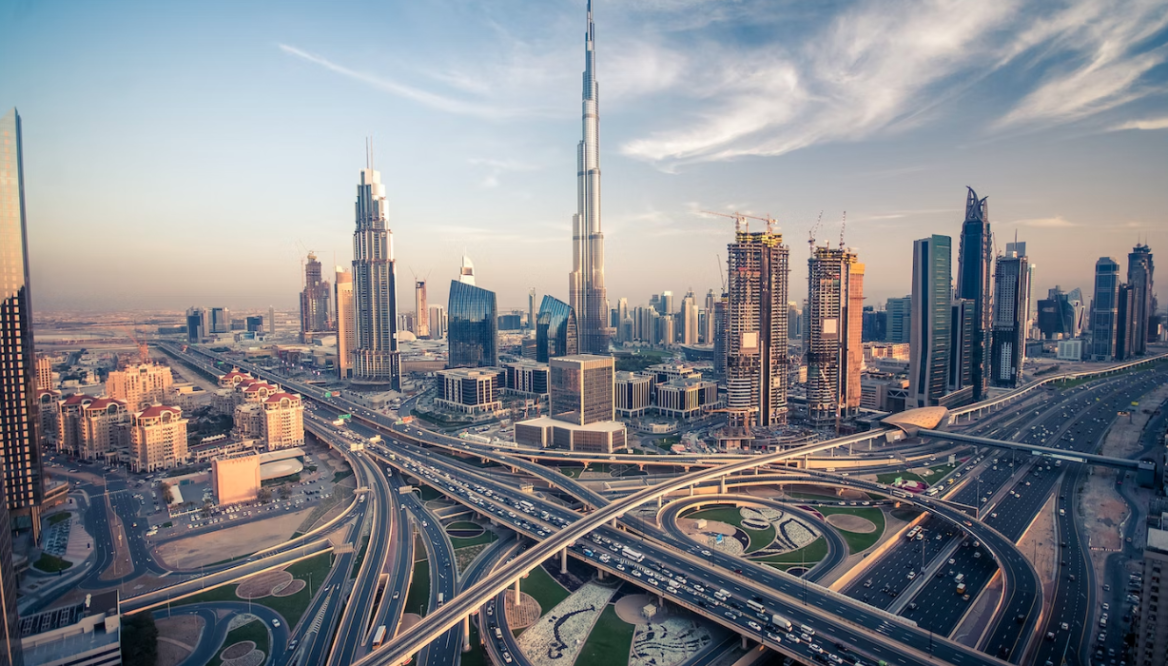Dubai, with its iconic skyline, luxurious lifestyle, and bustling economy, is not only a global business hub but also a sought-after destination for tourists and expatriates. As a result, its roads witness a diverse blend of drivers from around the world. Navigating the city’s roads can be an exhilarating experience, but it’s essential to be well-versed in the rules, regulations, and safety tips to ensure a smooth and secure journey.
Rules and Regulations:
Driving License:
To drive in Dubai, you must have a valid driving license issued by the United Arab Emirates (UAE) or an international driving permit (IDP). Expatriates can use their home country’s driving license for up to six months, after which they need to obtain a UAE driving license.
Age Restrictions:
The legal driving age in Dubai is 18 years for UAE nationals and 21 years for expatriates. This age requirement applies to both car and motorcycle drivers.
Seatbelts and Child Restraints:
Seatbelt usage is mandatory for all passengers in the vehicle. Children under the age of four must be seated in a child restraint appropriate for their age and size.
Mobile Phones:
Using a mobile phone while driving is strictly prohibited unless you have a hands-free system. Texting or holding a phone can result in fines and penalties.
Speed Limits:
Dubai has well-enforced speed limits, and exceeding these limits can lead to hefty fines and even vehicle confiscation. Speed limits are generally well-indicated on roads, with urban areas usually having a limit of 60-80 km/h (37-50 mph) and highways having limits of 100-120 km/h (62-75 mph).
Alcohol and Drugs:
Driving under the influence of alcohol or drugs is a severe offense with severe penalties, including fines, license suspension, and even imprisonment. The legal blood alcohol concentration limit is very low, typically 0.02%.
Parking:
Dubai has strict parking regulations, and illegal parking can result in fines and even vehicle towing. Be sure to park only in designated areas and pay attention to parking signs.
Safety Tips:
Defensive Driving:
Adopting a defensive driving approach is crucial in Dubai’s fast-paced traffic. Be prepared for unexpected lane changes, sudden stops, and erratic driving behavior from other drivers.
Follow Lane Discipline:
Stick to your lane and avoid weaving in and out of traffic. Lane discipline helps maintain a steady flow of traffic and reduces the risk of accidents.
Maintain Safe Following Distance:
Keep a safe following distance from the vehicle in front of you. This provides you with ample time to react to sudden stops or emergencies.
Use Indicators:
Using indicators while changing lanes or making turns is not just courteous but also essential for maintaining traffic flow and preventing collisions.
Mind the Blind Spots:
Large vehicles and trucks have significant blind spots. Avoid lingering in these areas, as the driver might not be aware of your presence.
Be Cautious at Roundabouts:
Navigating roundabouts can be tricky, especially for newcomers. Yield to vehicles already in the roundabout, and signal your intention clearly when exiting.
Pedestrian Safety:
Dubai has numerous pedestrian crossings. Always yield to pedestrians at designated crossings and adhere to traffic signals.
Extreme Weather Caution:
Dubai experiences extreme heat during the summer months, which can affect both the driver and the vehicle. Stay hydrated, use sun protection, and ensure your vehicle is adequately cooled. Additionally, when rare rain occurs, roads can become slippery due to the build-up of oil, so exercise extra caution.
Emergency Services:
In case of accidents or breakdowns, dial 999 for emergency services. Keep an emergency kit in your vehicle, including water, first aid supplies, a flashlight, and essential tools.
Road Rage and Patience:
Maintain your composure and avoid engaging in road rage situations. Dubai’s authorities take aggressive driving seriously, and it can lead to fines or legal consequences.
Familiarize Yourself with Routes:
Before setting out, use navigation tools to familiarize yourself with the route. Dubai’s roads can be complex, and being prepared can help reduce stress while driving.
Check Your Vehicle:
Regularly inspect your vehicle, including brakes, lights, tires, and fluid levels. A well-maintained vehicle is less likely to break down and ensures your safety on the road.
Night Driving:
Driving at night can be challenging due to glare from other vehicles and reduced visibility. Ensure your headlights are clean and aligned correctly, and avoid using high beams when there’s oncoming traffic.
Wildlife Caution:
Dubai’s desert outskirts might occasionally see wildlife near the roads. Be cautious, especially during dawn and dusk, when animals might be more active.
Driving in Dubai can be a unique experience that offers both challenges and rewards. By adhering to the rules and regulations, practicing defensive driving, and staying mindful of safety tips, you can navigate the city’s roads confidently and enjoy a smooth and secure journey amidst the iconic landscapes and modern marvels that Dubai has to offer.

